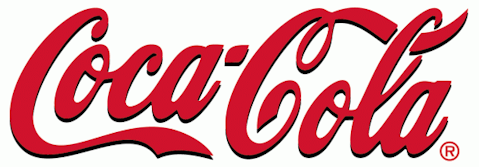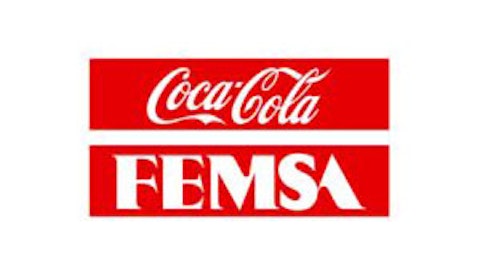Earlier this week Jill Zullo, technical director at Cargill Corn Milling North America announced that the development of the company’s new extraction process designed to produce stevia, the zero calorie natural sugar substitute, via a fermentation based process is moving ahead of schedule. Ms. Zullo went on to explain that Cargill is very confident with the technical progress and will be moving into pilot stage sometime this year as opposed 2014, as earlier announce. This is a big jump for stevia production considering the explosive growth that stevia has experienced since the U.S Food and Drug Administration approved the extract as generally recognized as safe (GRAS) in December 2008. Stevia has since moved off health food store shelves and into products manufactured by The Coca-Cola Company (NYSE:KO), PepsiCo, Inc. (NYSE:PEP), Monster Beverage Corp (NASDAQ:MNST), Kraft Foods Group Inc (NASDAQ:KRFT), and Starbucks Corporation (NASDAQ:SBUX). Stevia is also now being produced by giant food manufactures like Ingredion Inc (NYSE:INGR), Archer Daniels Midland Company (NYSE:ADM), Tate & Lyle PLC (LON:TATE), and PureCircle Limited (LON:PURE). The World Health Organization estimates stevia could capture over 20% of the entire $58 billion sweetener business, or roughly $11.6 billion.

STEVIA SOON COULD BE THE SWEETENER OF CHOICE FOR $10 BILLION SUGAR SUBSTUTUTE MARKET
While stevia clearly is now entrenched as the natural zero calorie sugar substitute of choice if the price to produce stevia could be lowered and the flavor profile adjusted it is quite possible that stevia could capture the lion share of not just the natural zero calorie or reduced calorie market, but the sugar substitute industry as a whole. However, stevia is still in its infancy stages as growers and producers continue working on building a stable supply line and a better taste profile.
The challenge is there are roughly 30 different steviol glycosides, each with different levels sweetness and bitterness, and some of these glycosides appear to work better as a sugar substitute than the glycosides being used today. The problem is that these better flavored glycosides, like Reb D and Reb X are found in trace amounts in the leaves making it not as cost effective to extract and produce in mass quantities. And though producers, like the Malaysian company PureCircle, the largest stevia producers, have been developing new strains of stevia plants with a higher amount of both Reb X and Reb D, it will still require a substantially greater amount of stevia leaves to produce the extract, thus requiring more land, more water, more labor, and more production for extraction. Though the product would have a better taste profile it would raise the costs considerably; making stevia even more expensive compared to artificial sweeteners, thus the conventional method at best would keep stevia as a boutique natural sugar free substitute.
THE FUTURE OF STEVIA IS THROUGH FERMENTATION
The answer to lowering the cost to produce stevia and developing better flavor profiles which could then compete with the artificial sweeteners appears have been solved via the microbial fermentation method that Cargill is developing. Through a yeast based fermentation the producer uses low-cost sustainable carbohydrate feedstock, like corn, as starting material to create steviol glycosides that are molecularly the same as the glycosides that are extracted via leave production. Therefore the actual stevia leaf is not needed to produce the stevia extract, and there would be no need for farm acreage, or the costs of growing the crop, harvesting, or extracting the stevia. And because the fermentation bypasses these steps the cost of producing stevia has been estimated to be 70% less than compared to the conventional method. And that 70% savings would make it cost effective enough that it should open the door for stevia to compete cost-wise with the entire sugar substitute industry not just the natural sugar substitute business.
There is a second benefit using the fermentation method is that the producer can develop any steviol glycoside extract regardless of how minute in the leaf, and in any quantity, including Reb D and Reb X. The producer would also be able to tweak the extract profiles allowing for the stevia sweetener to be target specific, meaning that one extract profile for colas and a different one for orange juice, and another for root beer, all at a much lower cost.
TWO SEPARATE STEVIA FERMENTATION METHODS ARE BEING TESTED ON PILOT SCALES
Cargill gained its fermentation process by partnering with a small Swiss company Evolva Holding SA (EVE:SWX), which had been developing a yeast based stevia fermentation method. And because of The Coca-Cola Company (NYSE:KO)’s partnership with Cargill in Truvia, the best-selling stevia product on the market, Coca Cola should soon have both a flavor and cost advantage over Pepsi and other bottlers and food manufactures.
On a business sense, PepsiCo, Inc. (NYSE:PEP) would have no choice but to develop a competing natural zero calorie sweetener. The beverages industry are a very competitive business, the slightest advantage one company can have over the other can result in billions of dollars in sales. Last December Pepsi, hoping to bolster sales of its sluggish diet soda line which was losing market shares to The Coca-Cola Company (NYSE:KO), changed the sweetener it used. In hopes of a slight taste advantage over Diet Coke, Pepsi switched to an aspartame and acesulfame potassium blend which has a crisper taste and the sweetness doesn’t break down as quickly as aspartame alone.
So if Coca Cola can produce a better tasting diet drink using stevia it would have an advantage in taste over PepsiCo, Inc. (NYSE:PEP), which would force Pepsi’s hand to either develop another sweetener to compete or switch to a stevia based product. And while switching to a stevia sweetener could address the flavor profile, Coca Cola via the fermentation method, would be producing stevia extract at a considerably lower price, which means even if Pepsi did convert to stevia The Coca-Cola Company (NYSE:KO) would maintain a cost advantage over Pepsi.
Cargill and Evolva are not without competition in developing stevia via a fermentation process. A small company out of California Stevia First Corp (OTCMKTS:STVF) has been developing its own fermentation process that the company licensed from Vineland Research and Innovation Center of Ontario Canada in 2012. Named “Nature-Identical Stevia”, Stevia First has been scaling up production of its stevia fermentation method as it readies the company to begin commercialization. The company is currently preparing the necessary regulatory and food safety documentation to submit to the state of California and the U.S. Food and Drug Administration, and recently announced it will conduct its first public stevia tasting event this coming December showcasing its fermentation process derived “Nature-Identical Stevia.”
Company CEO Robert Brooke commented in a press release earlier this month: “We are excited to hold this tasting event, which enables us to celebrate our progress in a way that also raises awareness of our stevia innovations. We have a fantastic team whose focus to date has enabled this milestone, and their continued diligence is sure to help us maintain a brisk pace of development.”
One must remember Stevia First is a very small company with an $18.6 million market capitalization, and if it wants to compete in the big leagues it will need to entice a partner that has the financial strength and distribution channels necessary, which appears that Evolva did when it partnered with Cargill.
CONCLUSION
I believe that the fermentation method will change the way stevia is produced. I also believe that if Coca Cola is successful with its fermentation based stevia products PepsiCo, Inc. (NYSE:PEP) will have no choice but to develop a competing product. Once the beverage industry is able to develop new lower calorie drinks with a great taste profile not filled with artificial chemicals I think the beverage companies will see sales soar and profits rise, which is why I think The Coca-Cola Company (NYSE:KO) and PepsiCo, Inc. (NYSE:PEP) will continue to be excellent stocks to have in ones long term portfolio.
However, in terms of producing stevia I don’t see the conventional farming method having the ability to meet the future demands projected for stevia, so I’d be extra cautious in investing in companies that only grow via the conventional method. As stated earlier stevia is still in its infantile stage and one must be cautious when investing as many of the stevia growers and producers will probably fall by the wayside.
I am very excited about companies associated with the fermentation method as this process has the potential to meet the demands of the global giant bottlers both in volume and in taste, which is why I think the stevia fermentation method is the future of the sugar substitute industry. I would not be surprised to see companies like PepsiCo, Inc. (NYSE:PEP), PureCircle, Kraft Foods Group Inc (NASDAQ:KRFT) or Archer Daniels Midland make a play for a company that has the capabilities of developing a fermentation based process for stevia – after all that is what Cargill did with Evolva.
Recommended Reading:
Johnson & Johnson (JNJ), PepsiCo, Inc. (PEP): Investments for the Rest of Your Life
PepsiCo, Inc. (PEP): The Coca-Cola Company (KO) Wants to Start a Hot New Trend





